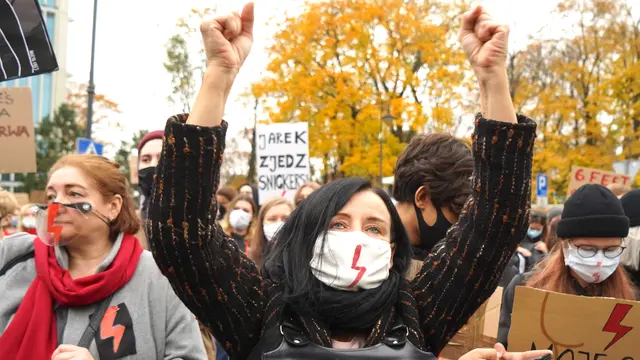01:08
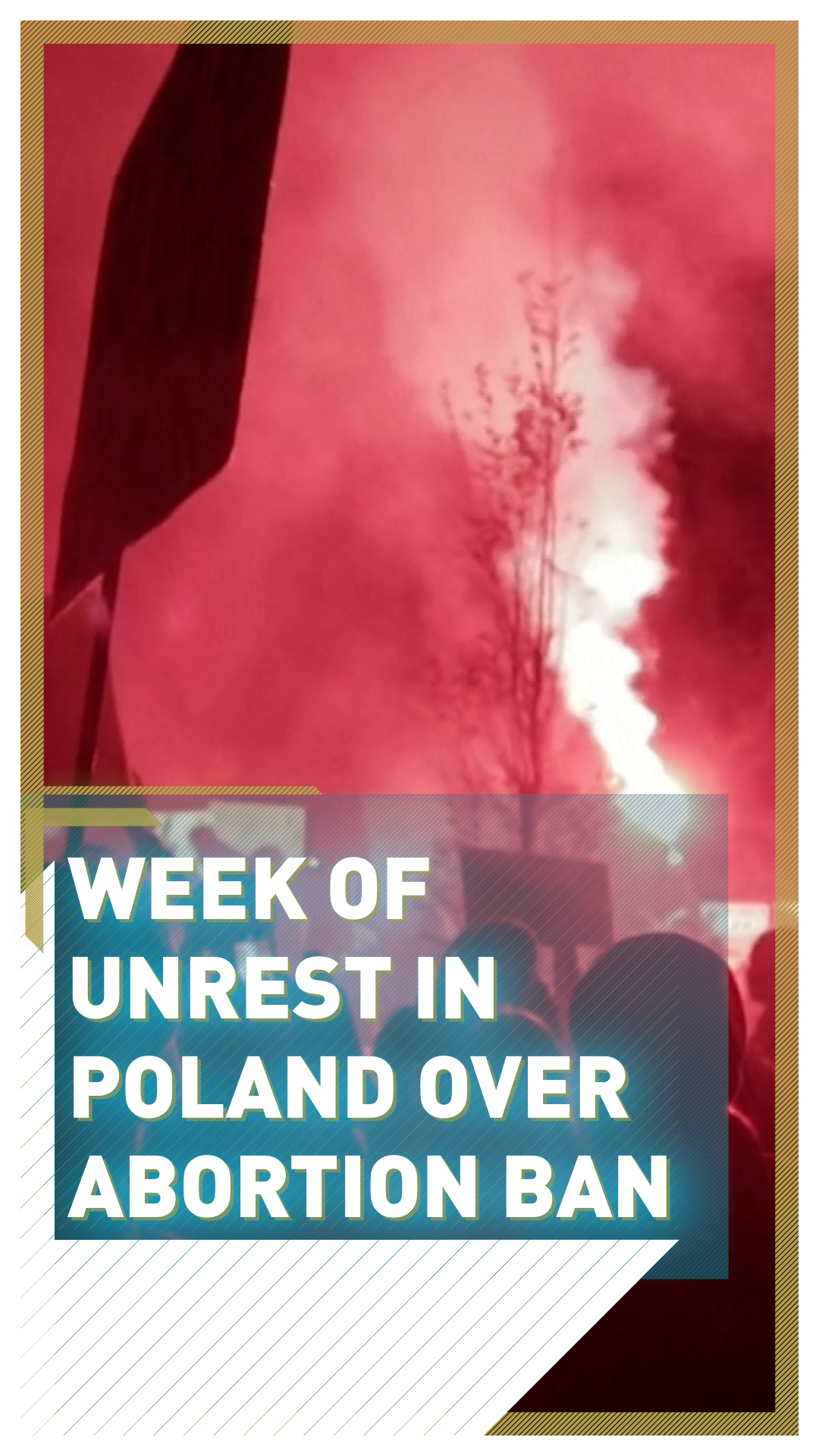
Support for pro-choice protesters in Poland has grown as demonstrations continue into an eighth day, with even the president stepping back some of his support for the country's controversial abortion ban.
Protests started after a constitutional tribunal on October 22 made abortions extensively illegal expect in the cases of rape, incest or harm to the mother.
The new restriction would ban the terminations of a fetus because of an abnormality, the most common form of legal abortion in Poland prior to this ruling.
Since that decision, protests have erupted across the country, with demonstrators calling for a women's strike, disrupting parliament, clashing with police, dressing as handmaids and blocking roads and bridges.

CLICK: WHY THE ALPS FACE AN UNCERTAIN FUTURE
Thousands of women walked out of their jobs on Wednesday in support of the strike, including Kinga Rutkowska, a barber in Warsaw, who closed her business for the day.
"To be honest, financial losses for my shop will be about [$250] for the day of protest, but I am aware that I have a big influence on what is going to happen next," she told Reuters, adding:"I want to join in solidarity with these women because I think that we have a chance to change something, we have a chance to do something as a group."
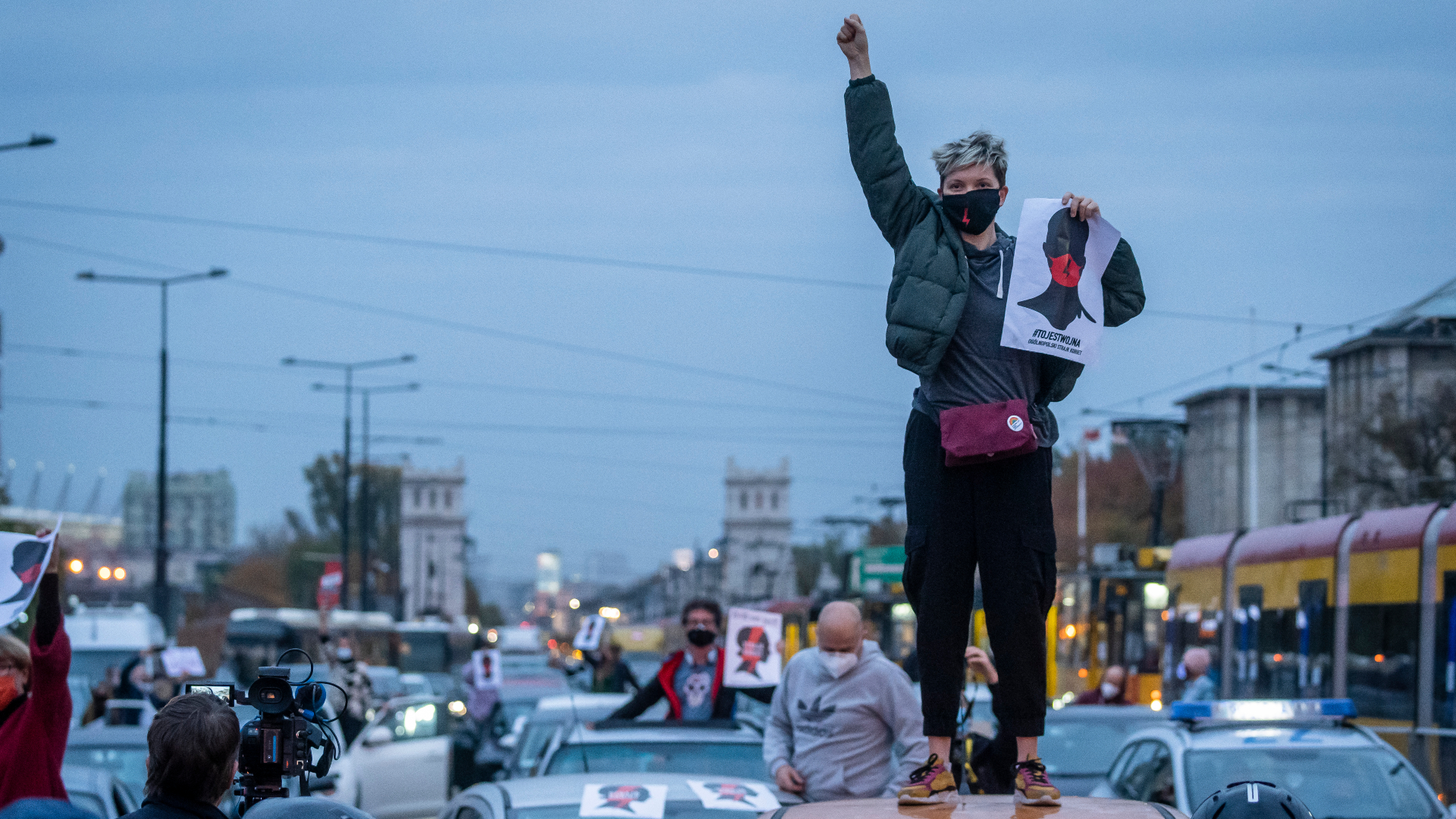
A demonstrator wearing a mask with a lightning bolt that represents the protest movement while blocking traffic in the center of Warsaw, Poland. /Wojtek Rabwanski/AFP
While Rutkowska claimed that she lost some customers because of the strike, overall the support against the ban is increasing in the country.
Polish police estimated that around 430,000 people participated in demonstrations on Wednesday, while a poll by Warsaw daily newspaper
Gazeta Wyborcza
suggested that 59 percent of people supported access to abortions in the case of fetal abnormalities.
Another poll by independent IBRiS pollsters on October 29 claimed that 66 percent of people oppose last week's ruling and 69 percent want a referendum on the ban.
Protests have spread to other countries, with solidarity demonstrations in front of Polish embassies in Rome, London, Stockholm and Lisbon.
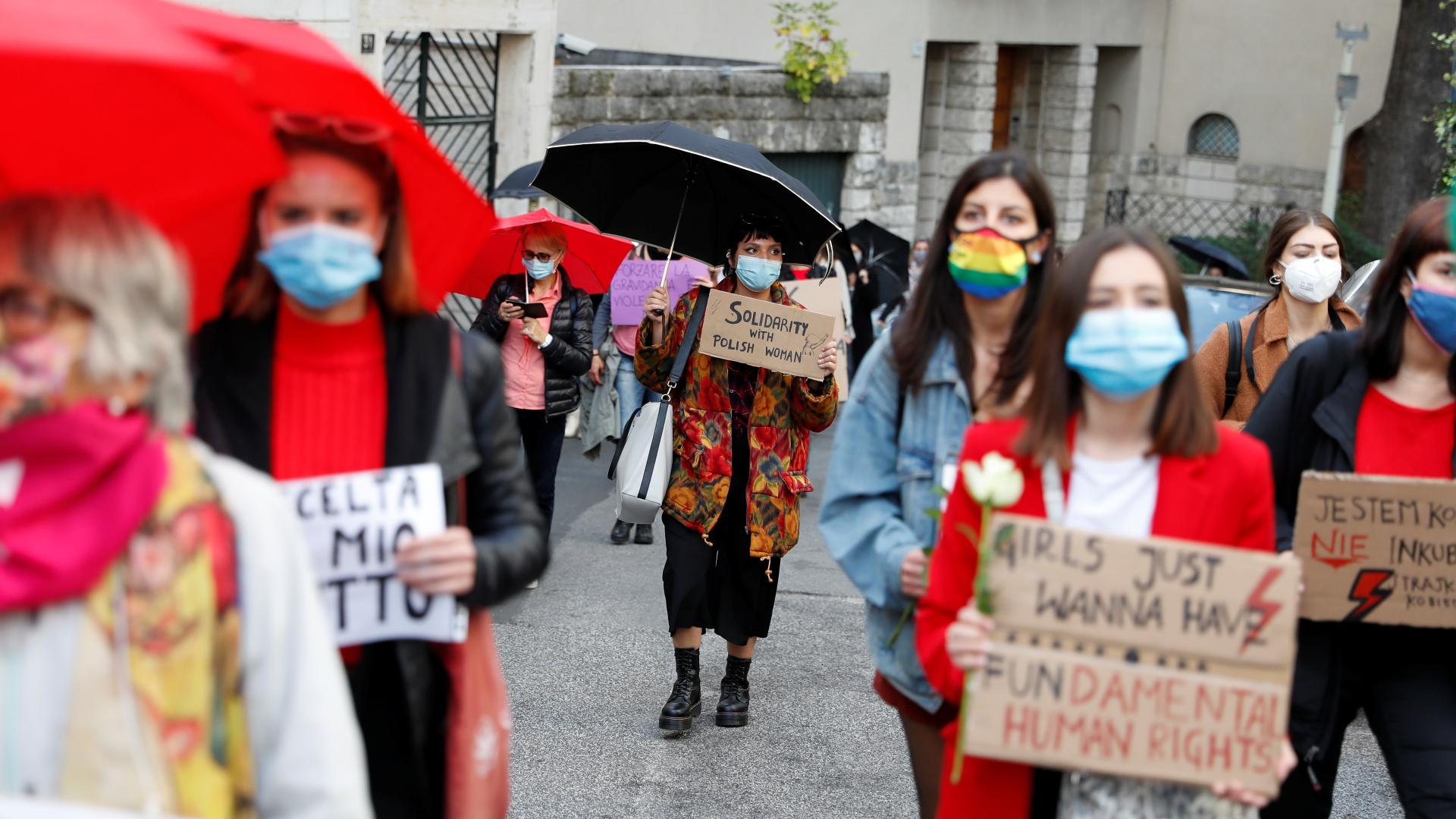
Women marching in Rome in solidarity with protesters in Poland. /Yara Nardi/Reuters
International organizations have also criticized the government's response to protests, including the deployment of riot police and military gendarmes on October 28.
"We are gravely concerned about the safety of women in Poland," said Irene Donadio, a representative from the International Planned Parenthood Federation.
"The ruling of this tribunal has trampled upon their rights and freedoms and now their protests are being stifled by the police and army.
"Citizens cannot be bullied. We ask the European Union to stand firm against the erosion of civil liberties and show solidarity with defenders of fundamental rights in Poland."
Protesters blocking traffic in Warsaw, Poland. /Wojtek Radwanski/AFP
Andrzej Duda, Poland's president, also stepped back his support for the new restrictions supported by his party, the Law and Justice party (PiS).
In an interview with radio RMF FM, he said "it cannot be that the law requires this kind of heroism from a woman." He added that he would support allowing abortions for when a fetus has a lethal condition.
On the other hand, PiS leader Jaroslaw Kaczynski has reiterated his support for the ban, calling on the public to protect churches after pro-choice protesters demonstrated during Sunday mass. He added on Facebook that the ruling was in line with the constitution.
Prime Minister Mateusz Morawiecki has also called for an end to protests, citing a spike in COVID-19 infections in the country.
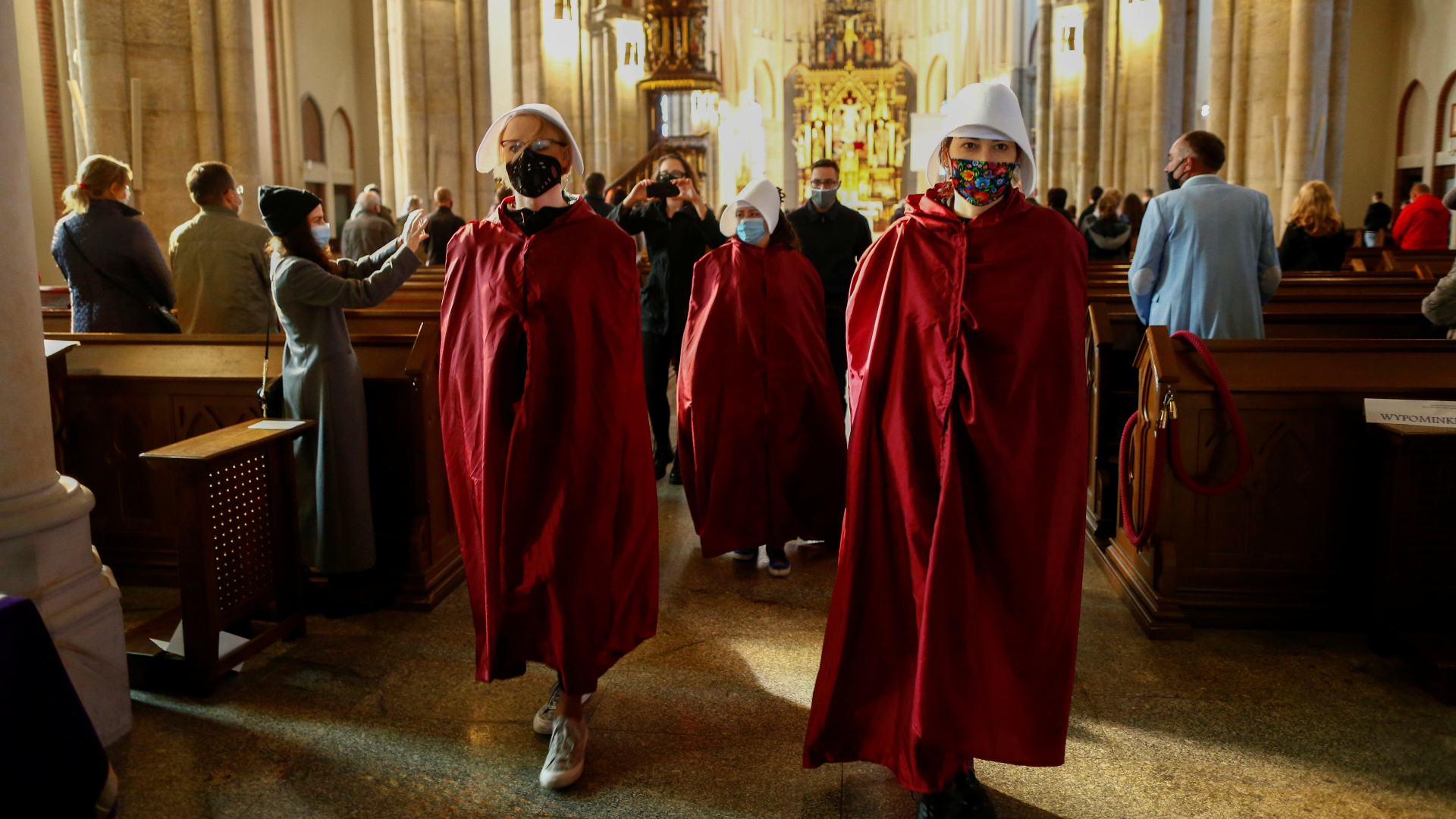
Protesters dressed as handmaids in a cathedral in Lodz, Poland. /Marcin Stepien/Agencja Gazeta/Reuters
Before this ruling, Poland had the strictest abortion laws in Europe, resulting in fewer than 2,000 abortions in the country each year. However, women's groups estimate that another 200,000 abortions are conducted illegally or abroad.
In addition to these stricter rules, Polish politicians announced plans to leave the Istanbul Convention in July of this year. The convention is an international treaty that was meant to fight against violence against women.
Source(s): AP ,AFP ,Reuters
 简体中文
简体中文

